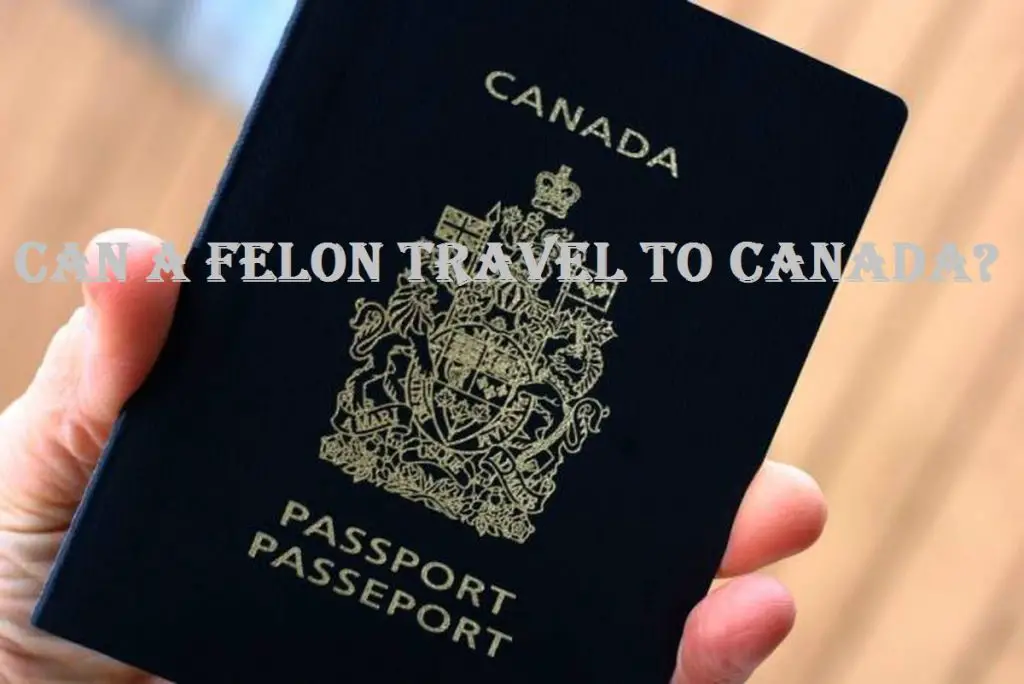Over 10 million citizens of the United States visit Canada every year. This figure has fluctuated yearly but the fact remains that a large number of Americans go to Canada for holiday, employment, tourism or school. Therefore, it is not unusual to see individuals with a criminal record inquiring about if they can travel to Canada as well.
In this article, we will answer some questions you may have about traveling to Canada as a felon. This article will be especially useful if you have a felony conviction on your criminal record. We will explain why felons are deemed inadmissible by the Canadian government. Furthermore, we will explain some things you should know if you are a felon who wants to visit Canada. Lastly, we will highlight the process that felons need to follow if they want to visit Canada.
Why are many felons deemed inadmissible by the Canadian government?
A foreign government retains the right to deny individuals who they deem dangerous, entry into their country. Hence, the Canadian government tries to admit only law-abiding individuals into the country.
The individuals that may be inadmissible based on immigration laws are people who may endanger the security of the country and its citizens.
Felons who have served prison sentences or have been placed on probation are seen as rehabilitated in the United States. However, the Canadian government does not have a way to assess if the felon is rehabilitated.
Read also: How does felony probation work in California?
Through the Canadian Border Services Agency (CBSA), the government is able to regulate entry into Canada. Felons may be allowed to travel to Canada but they will refused entry.
8 Things you should know if you are a felon who wishes to Travel to Canada

1. The Canadian government and border control have access to the American criminal records database.
It may be tempting to lie about your criminal history. However, you may still be unsuccessful and the lie could have an adverse effect. If you lie about your criminal record, it may be discovered. You will be seen as dishonest and you may be banned from entering Canada for up to 5 years.
2. Border control may not consider how long ago you committed the felony.
Usually, if your felony conviction occurred 7-10 years ago, you will be considered rehabilitated. This is not the case with the Canadian government. If they look at your records and still believe that you are a threat, you will not be allowed entry into Canada.
3. A felony arrest could make you inadmissible to Canada.
A felony arrest is not the same as a felony conviction. A felony arrest refers to a situation whereby an individual is arrested for committing a felony, But, the individual has not been charged or convicted for the crime. Hence, the person is not yet a felon.
Still, the nature of the felony arrest could make the person seem like a security and safety threat.
The only way such an individual will be allowed entry into Canada is if they are proven to be innocent or the charges against them are dropped. For this reason, individuals who have felony cases should handle their cases before attempting to enter Canada.
4. The severity of the crime you committed may determine if you will be denied entry into Canada
If the felon commits a crime in the United States, the equivalence of the crime in Canada and the punishment due may be used as a basis for inadmissibility.
5. The border agent that handles your case will decide if you will be allowed to enter Canada.
A border agent may feel that you are not eligible to enter Canada because of a felony conviction. However, another agent may admit someone else with a similar conviction.
6. You may need to hire an immigration lawyer to help you through the process of gaining entry into Canada.
Securing a lawyer is an additional but necessary expense. Your lawyer will ensure that all the documents and application forms are correctly filled. This will increase your chances of being allowed into Canada.
7. Some felonies committed outside Canada will not make you inadmissible.
This is because some felonies are not equally weighted in the United States and Canada. You may need to contact an immigration lawyer to confirm if your felony conviction will hinder your entry into Canada.
For instance, if you were convicted for possession of fewer than 30 grams of marijuana in the United States, you may still be able to travel to Canada. This is because marijuana has been legalized in Canada.
8. An expunged criminal record could still make you inadmissible to Canada.
In the United States, you can apply to have your felony conviction expunged after you have completed your felony probation. Expungement makes records of the felony conviction unavailable to the general public. So, you will be able to get a job, and housing without explaining your felony conviction.
However, if you wish to travel to Canada, you must disclose the felony conviction that was expunged.
Because Canadian immigration has access to the criminal records database, they will be able to see the felony conviction that was expunged. This could cause immigration officials to deny your entry to Canada.
If your conviction was expunged, include this detail on your visa application form. If you wish to confirm if you will be able to enter Canada, you should make a rehabilitation request or contact an immigration lawyer.
3 ways you can Travel to Canada if you are a Felon in [year]

Below are the ways felons may be able to gain entry into Canada:
1. Criminal rehabilitation
To qualify for this method, felons must have completed their sentences at least 5 years before submitting their application. The felons must have also served at least a 10-year sentence.
To start the process, felons will need to fill the application form. On the form, they will fill the necessary and correct information. Felons will need to explain what their offense was, the circumstances surrounding it and how they have changed since their conviction. The felon will then attach some documents to the application form and pay the application fee.
The application fee will not be refunded to the individual if their application is not approved.
The application will be assessed by an immigration officer who will forward it to a superior or the
Minister of Citizenship and Immigration. Then, a decision will be reached on if the felon is eligible for entry into Canada.
The reviewing officers will analyze all the information that was provided to ascertain if the felon is rehabilitated or not.
If the felon’s application is approved, they will be able to enter Canada as often as they want.
Importantly, this method is not for individuals who need an urgent solution. It takes up to one year to get approval.
While you are waiting for approval, you can also apply for a temporary resident permit.
2. Canada Temporary Resident Permit
If you are a felon and you would like to visit Canada, you could apply for a Canada temporary resident permit. This permit will be issued specially to the felon and may be invalid after they leave Canada. A temporary resident permit is usually valid for 6 months. If the felon wishes to visit again after the expiration of the resident permit, they will need to apply for another temporary resident permit.
Importantly, the felon’s purpose for visiting Canada should outweigh the risk that they pose to others in the country. This will be used to decide if a felon should be granted a temporary resident permit.
To apply for a Canadian temporary resident permit, the felon will need to go through the regular visa application process. The felon will need to apply for a visitor visa, fill the application form and state their felony charge or conviction.
Then, the necessary documents will be submitted with the application form. The felon will also need to provide documents that support their reason for wanting to visit Canada. After submitting these documents, the individual will need to pay an application fee of CAN$200.
Paying the fee does not guarantee that the application for the permit will be approved. If the application is rejected, the felon will not receive a refund.
To receive a temporary resident visa, the felon must have valid reasons to travel. These reasons include; work, school and visiting family.
3. Rehabilitation request
Unlike individual rehabilitation, you do not pay a fee when using this method. To use this method, your felony conviction should have occurred at least 10 years ago.
Here, the felon can take all documents concerning their conviction and proof of rehabilitation to a Canadian consulate. At the consulate, the submitted documents will be reviewed. Using the documents, the agent will be able to assess if the felon is rehabilitated, and eligible to gain entry to Canada.
If the agent deems the felon inadmissible, the felon will remain unable to enter Canada. Individuals who do not have funds for the other 2 methods on this list should try this method first.
Recommended: Can a Felon Drive through Canada to Alaska?
